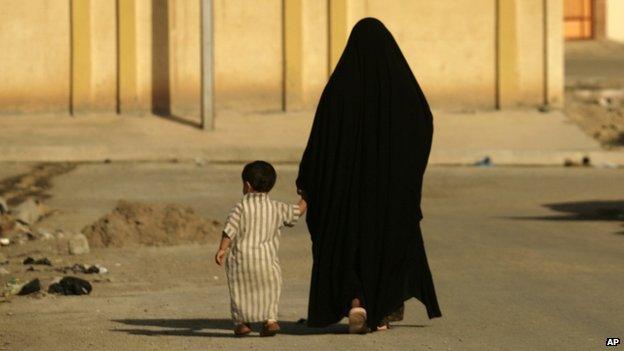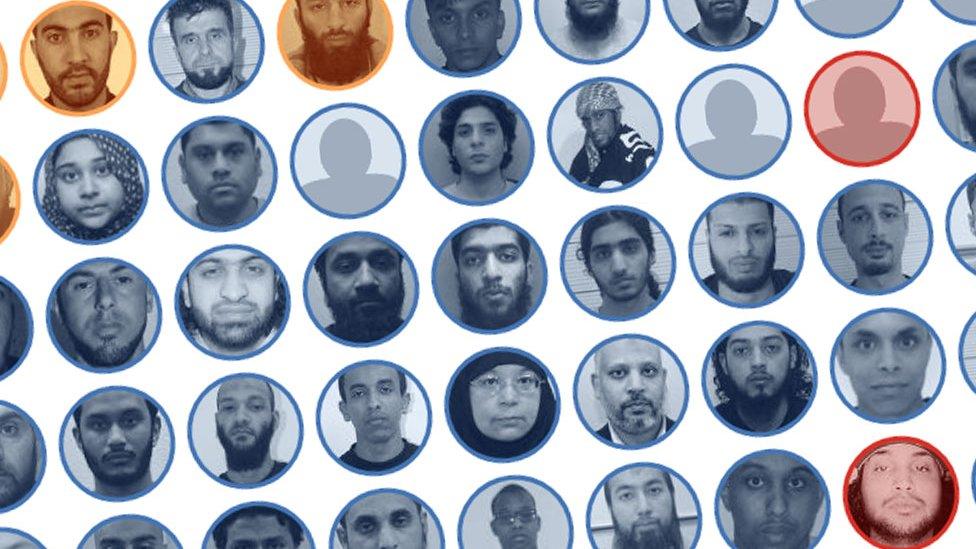Islamic State: Women who join discover 'harsh realities'
- Published

Young women travelling to Syria to join Islamic State often end up "domestically isolated in severe conditions", new research claims.
UK-led research suggests that the women do not join with the intention of becoming "jihadi brides", but often end up facing "harsh realities".
The report also says the recruits are increasingly younger and come from comfortable and educated backgrounds.
An estimated 4,000 Westerners have joined IS, including some 550 women.
The joint report by the Institute for Strategic Dialogue and the International Centre for the Study of Radicalisation at King's College London says women are far from passive agents, with some involved in aspects of IS life including propaganda and recruitment.
But it suggests that, whatever women's reasons for joining IS, also known as Isis, their "first and foremost" responsibility will actually be "to be a good wife to the jihadist husband to who they are betrothed and to become a mother to the next generation of jihadism".
Social media monitoring
Researchers have monitored more than 100 of the women through social media platforms and analysed interviews with those who have been arrested by security forces.

Kadiza Sultana, Shamima Begum and Amira Abase are three of the teenage girls believed to have joined Islamic State
The researchers say that although many young women join up with pre-conceived and often naive ideas, many are living with no electricity and little comfort and those who do marry jihadi men often face widowhood.
The report says that though many women post photographs of themselves carrying guns, they are not allowed to fight and are confined to their homes with few managing to escape.

Co-author Melanie Smith said: "It gives a unique lens into the daily lives of foreign women living in the so-called Islamic State.
"Often through social media, we are able to read and hear about the complaints of daily life for females, often domestically isolated in severe conditions, and the realities of living within a war zone in a terrorist-held territory."
The report also says programmes aimed at preventing girls from joining IS are "too few, ill-informed and under-resourced".
It concludes that the role of female mentors in prevention and de-radicalisation programmes is vital, but that more such mentors are needed.
Shiraz Maher, senior research fellow at King's College London, said: "Female recruits now make up a substantial part of those who have emigrated to join the Isis cause, but little has been done to properly investigate the reasons why they are joining and how to prevent them.
"This important piece of research will go some way to helping stem that tide."
- Published24 February 2015

- Published12 October 2017
